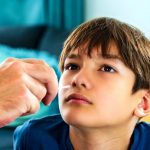Parent-collected nasal swab samples from kids could be as good at detecting respiratory infections such as COVID-19 as those taken by nurses, but that’s not the case with saliva samples, British researchers say.
Respiratory infections such as colds and flu are among the most common illnesses in kids treated by primary care doctors. COVID-19 is also a respiratory infection.
“Our study shows that it is possible for parents to collect good quality nose swab samples from children,” said study supervisor Alastair Hay, of the Center for Academic Primary Care at the University of Bristol.
This study — conducted before the COVID pandemic — included more than 300 parents and 485 kids around 5 years of age, in the United Kingdom.
Nasal and saliva swab samples were collected by both parents and nurses and sent to a laboratory for detection of 40 common respiratory bugs.
While nasal swab samples collected by parents compared well with those collected by nurses at detecting viral (91.6%) and bacterial respiratory infections (91.4%), the same was not true of saliva swab samples (69% for viral infections and 78.1% for bacterial infections).
“Given the widespread use of nasal swabbing throughout the COVID-19 pandemic, this study has highlighted the suitability, benefits and convenience of parent-collected swabs for subsequent identification of respiratory microbes,” Hay said in a university news release.
The findings were published Nov. 10 in the journal Microbiology Spectrum.
Parents should be confident about collecting a nose swab from their child for laboratory analysis for any common respiratory bug, said lead author Claire Woodall, research associate in primary care infectious diseases epidemiology.
“In fact, our study showed that parents collected a higher number of human cells on the nose swabs compared to the nurses, which suggests that children are more tolerant of a parent performing the swabbing technique,” Woodall said in the release.
More information
The American Academy of Pediatrics explains when children should be tested for COVID-19.
SOURCE: University of Bristol, news release, Nov. 10, 2021
Copyright © 2026 HealthDay. All rights reserved.
















